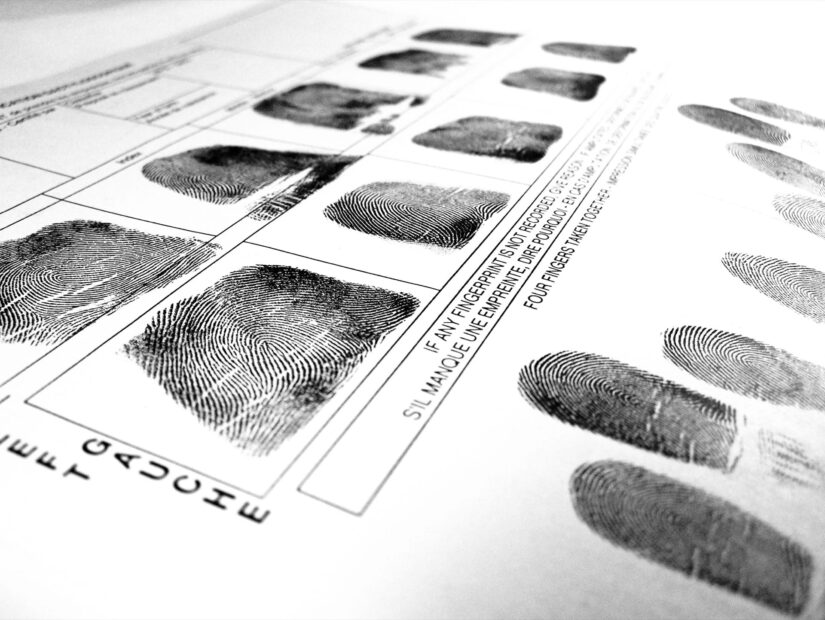
August 26, 2025
Intoxicated manslaughter in Texas happens when someone causes a death by accident while driving or operating vehicles like boats or planes under the influence of alcohol or drugs. This is a second-degree felony under Texas Penal Code Section 49.08, with penalties including:
- Prison time: 2–20 years
- Fines: Up to $10,000
- Community service: 240–800 hours
- License suspension: 6 months to 2 years
The prosecution doesn’t need to prove intent—just that intoxication caused the fatality. Factors like a BAC of 0.08% or higher or impairment from drugs, even prescribed ones, can lead to charges. Aggravating factors, like a BAC of 0.15% or higher, prior DWI convictions, or causing the death of a first responder, can increase penalties.
If charged, hire an attorney immediately. Defense strategies may include challenging BAC test accuracy, disputing causation, or identifying procedural errors. Early action is critical, as a conviction can impact your life with prison time, fines, civil lawsuits, and loss of rights like voting or gun ownership.
Legal Definition and Core Elements of Intoxicated Manslaughter
Statutory Definition of Intoxicated Manslaughter
Texas Penal Code Section 49.08 lays out the legal definition of intoxicated manslaughter. According to this statute, the offense occurs when someone operates a motor vehicle, aircraft, watercraft, or amusement ride or assembles a mobile amusement ride in a public place while intoxicated and, as a result of that intoxication, causes another person’s death by accident or mistake.
The statute emphasizes that the act of operating these vehicles or rides while intoxicated, leading to an accidental death, constitutes a criminal offense.
Key Elements Prosecutors Must Prove
To secure a conviction for intoxicated manslaughter, prosecutors need to establish three critical elements beyond a reasonable doubt:
- Operation in a Public Place: The defendant must have been actively operating a motor vehicle, aircraft, watercraft, or amusement ride in a location that is accessible to the public.
- Proof of Intoxication as Defined by Texas Law: This includes either a blood alcohol concentration (BAC) of 0.08% or clear evidence of impairment caused by alcohol, drugs, or controlled substances.
- Causation by Accident or Mistake: It must be shown that the defendant’s intoxication directly resulted in the fatality, linking the impaired state to the accidental death.
These elements distinguish intoxicated manslaughter from other criminal charges and ensure that the focus remains on the role of intoxication in the incident.
How Intoxicated Manslaughter Differs from Other Homicide Offenses
Homicide in Texas is divided into four categories: capital murder, murder, manslaughter, and criminally negligent homicide. Intoxicated manslaughter stands out as a unique form of manslaughter due to several key differences:
- No Requirement of Intent: Unlike murder, which requires intent to kill, intoxicated manslaughter is based solely on the act of operating a vehicle while impaired.
- Emphasis on Impaired Operation: While standard manslaughter involves reckless behavior, intoxicated manslaughter specifically targets cases where the defendant was under the influence while operating a vehicle or similar equipment.
- Comparison to Criminally Negligent Homicide: Criminally negligent homicide involves causing death through negligence. In contrast, intoxicated manslaughter focuses on proving that the defendant’s impaired driving was the direct cause of the fatal accident.
These distinctions highlight how intoxicated manslaughter is treated differently from other homicide-related offenses under Texas law.

Texas Laws and Penalties for Intoxicated Manslaughter
Texas enforces strict penalties for intoxicated manslaughter to discourage impaired driving and protect public safety.
Standard Penalty Range for Intoxicated Manslaughter
Intoxicated manslaughter is classified as a second-degree felony in Texas, carrying serious consequences. Those convicted face 2 to 20 years in prison, fines of up to $10,000, and 240 to 800 hours of community service, depending on the case specifics. Additionally, offenders may lose their driver’s license for 6 months to 2 years and be required to pay annual fees of up to $2,000 for three years to retain driving privileges.
Recent updates to the law have introduced fines ranging from $3,000 to $6,000 for driving while intoxicated under aggravating circumstances. For individuals granted community supervision, judges must impose a minimum jail term of 120 days.
Factors That Increase Penalties
Certain factors can lead to harsher penalties for intoxicated manslaughter. For example, having a blood alcohol concentration (BAC) of 0.15 or higher at the time of the offense increases the severity. A first conviction within 36 months may result in a $3,000 fine, while subsequent convictions can lead to fines of $4,500.
Prior convictions for driving while intoxicated (DWI) or related offenses also lead to stricter sentencing. If the victim is a first responder – such as a police officer, firefighter, or emergency medical technician – the charge may escalate to a first-degree felony, punishable by 5 to 99 years or life in prison and a fine of up to $10,000. Similarly, causing multiple fatalities in a single incident can result in a first-degree felony charge. Other aggravating factors include having a minor in the vehicle or the presence of an open alcohol container during the offense. These enhancements underscore the seriousness with which Texas treats intoxicated manslaughter.
Penalty Comparison with Related Offenses
To better understand the gravity of intoxicated manslaughter, it helps to compare it to related offenses under Texas law:
| Offense | Prison Term | Fine | Extra Penalties |
| Intoxicated Manslaughter | 2–20 years | Up to $10,000 | 240–800 hours of community service, license suspension |
| Enhanced Intoxicated Manslaughter (First Responder) | 5–99 years or life | Up to $10,000 | Same as above |
| Standard DWI | Varies by offense number | Less severe | Generally lighter sentences |
Intoxicated manslaughter carries much harsher penalties than standard DWI charges. While vehicular manslaughter often results in lighter sentences, it may sometimes serve as a plea option if prosecutors cannot definitively prove intoxication. Unlike murder charges, intoxicated manslaughter does not require intent to kill, yet its penalties remain severe.
Real-life cases highlight the application of these laws. In Montgomery County, a defendant received 10 years in prison and was ordered to pay $250,000 in restitution to the victim’s family. In another case, State v. Rodriguez, the court upheld a 15-year sentence after the defendant’s BAC was more than double the legal limit, resulting in a fatality. These examples, coupled with statistics showing 1,163 drunk driving fatalities in Texas in 2021—an average of one death every eight hours—demonstrate the state’s firm stance against intoxicated driving.

How Texas Courts Handle Intoxicated Manslaughter Cases
When it comes to intoxicated manslaughter, Texas courts follow a detailed legal process to ensure that all evidence is carefully reviewed and that proceedings remain impartial.
Steps in the Legal Process
The journey through the legal system in such cases typically starts with an arrest and moves through several stages: arraignment, pre-trial motions, and, if necessary, a trial. At the arraignment, the defendant is formally charged, enters a plea, and learns about bail conditions and future court dates.
Pre-trial motions follow, where defense attorneys may challenge evidence, seek to suppress statements obtained unlawfully, or work toward a plea deal. If no agreement is reached, the case moves to trial, where the prosecution must demonstrate beyond a reasonable doubt that intoxication directly caused the fatal incident. This structured process ensures a thorough examination of the evidence and arguments on both sides.
Evidence and Burden of Proof Requirements
Prosecutors in Texas intoxicated manslaughter cases must meet a high standard of proof: guilt beyond a reasonable doubt. Blood or breath tests showing a BAC of 0.08% or higher are often the cornerstone of the prosecution’s case. In instances where these tests are unavailable, other evidence—such as admissions of drinking or failed field sobriety tests—may be presented, though field tests can have error rates as high as 35%.
Establishing a direct link between intoxication and the fatal event is critical. Prosecutors may use accident reconstruction, dash or body camera footage, and witness statements to build their case. On the other hand, defense attorneys often contest the reliability of BAC tests, challenge the legality of the traffic stop, or argue that other factors, such as road conditions or mechanical failures, contributed to the incident. Past cases, like Williams v. Texas, have shown that even impairment from prescription medication can fall under the intoxicated manslaughter statute. Ultimately, the court weighs all evidence before moving to sentencing.
Sentencing Factors and Long-Term Consequences
Sentencing in intoxicated manslaughter cases takes into account more than just the charges. Judges evaluate the evidence carefully to determine appropriate penalties. Even if probation is granted, Texas law mandates a minimum 120-day jail sentence. If the vehicle is deemed a deadly weapon, inmates may not receive good time credit until half their sentence is served.
Financial penalties can also be steep, with annual surcharge fees ranging from $1,000 to $2,000 for three years—adding an extra $3,000 to $6,000 on top of court fines. Felony convictions carry additional consequences, such as losing the right to vote or own a firearm. The presence of alcohol in the defendant’s system can also influence jurors and prosecutors, often creating a presumption of guilt. Notably, intoxicated manslaughter charges can be brought even if there’s no evidence of reckless driving.

Defense Options and Legal Strategies
When facing intoxicated manslaughter charges, a strong defense strategy is essential to challenge the prosecution’s case. These cases require attorneys who can identify weaknesses in the evidence and develop strategies tailored to the specifics of each situation.
Common Defenses to Intoxicated Manslaughter Charges
One of the most effective approaches is questioning the evidence of intoxication. Defense attorneys often analyze blood testing procedures, maintenance logs, and the qualifications of those administering the tests to uncover potential flaws. Any inconsistency or error in the testing process can weaken the prosecution’s case.
Another key defense is disputing causation. This strategy focuses on showing that factors unrelated to intoxication—like hazardous weather, poor road conditions, or mechanical issues—were responsible for the accident. A notable example is the case of Texas v. TE. Although the defendant had a BAC of 0.19, accident reconstruction experts demonstrated that the collision was unavoidable. This led to a not guilty verdict for intoxicated manslaughter, with the defendant instead receiving a conviction for a lesser DWI charge.
Constitutional violations also play a critical role in defense strategies. Attorneys carefully review body camera footage, dispatch logs, and other records to identify procedural errors, such as illegal searches or failure to provide Miranda warnings. In Texas v. TP, for instance, intoxicated manslaughter charges were dismissed after the defense revealed a Fourth Amendment violation involving a warrantless blood draw, resulting in reduced charges of intoxication assault.
Field sobriety tests, often subjective in nature, can be challenged as well. Factors like medical conditions, fatigue, anxiety, or environmental influences can affect performance, casting doubt on the reliability of these tests.
Another approach involves redefining baseline behavior. By presenting medical records and witness testimony, attorneys can argue that the defendant’s behavior didn’t align with typical signs of intoxication. This is particularly effective in cases where prescription medications may have influenced the defendant’s actions.
When the evidence against a defendant is strong, mitigation strategies come into play. These focus on highlighting the defendant’s positive background, lack of prior criminal history, and genuine remorse to seek a reduced sentence.
Each of these tactics serves to challenge the prosecution’s case, ensuring that every aspect of the evidence is thoroughly examined.
Why Legal Representation Matters
Defending against intoxicated manslaughter charges isn’t just about the courtroom – it’s about navigating the entire legal process. A conviction for this second-degree felony can lead to penalties as severe as 2 to 20 years in prison and fines of up to $10,000.
From the moment charges are filed, skilled legal representation becomes critical. Attorneys safeguard a defendant’s rights by preserving evidence, addressing procedural errors, and preventing self-incrimination. Having access to legal counsel early on ensures that key steps are taken to protect the defendant’s interests.
Comprehensive investigations are a cornerstone of effective defense. Beyond the police report, defense teams work with experts like accident reconstruction specialists, toxicologists, and medical professionals to examine every detail—whether it’s equipment maintenance records or testing protocols.
Tailored strategies are essential for addressing the specific elements the prosecution must prove. In cases where plea deals are explored, experienced attorneys can often negotiate reduced charges or alternative sentencing options, minimizing the lasting impact of a conviction.
The Napier Law Firm exemplifies this personalized approach. Their commitment to protecting constitutional rights and scrutinizing every piece of evidence sets them apart. With free consultations, they provide vital support to clients navigating the complexities of Texas law.
Expert witness collaboration is another critical element. By working with specialists, defense attorneys can challenge the prosecution’s scientific evidence and present alternative explanations for the incident.
Given the complexity of intoxicated manslaughter cases, having a knowledgeable legal team is essential. From understanding the nuances of blood alcohol testing to developing courtroom strategies, experienced attorneys are crucial in ensuring the best possible outcome. These defense strategies highlight the importance of a proactive and strategic legal approach for anyone facing such charges.

Practical Steps for Those Facing Intoxicated Manslaughter Charges
Facing intoxicated manslaughter charges is a life-altering moment that demands swift and thoughtful action. The steps you take in the first hours and days following the charge can shape your defense and have a lasting impact on your future.
What to Do After Being Charged
Once charged, it’s critical to act carefully and strategically. First and foremost, invoke your right to remain silent. Do not answer any questions without an attorney present. This protects you from making statements that could be used against you later.
Hire an experienced attorney immediately. Intoxicated manslaughter charges come with severe penalties, and these cases often involve complex legal and scientific evidence. A skilled lawyer can help navigate these challenges.
Avoid discussing your case with anyone outside of your legal team, especially on social media or through text messages. Any casual comment could be taken out of context and used against you. If law enforcement presses for information, firmly state that you will not answer questions without your attorney.
If you’re released on bond, follow all conditions to the letter. Violating bond terms could lead to additional charges or complicate your defense.
Work closely with your attorney to gather key evidence. This might include police reports, dashcam footage, and sobriety test results. Transparency with your lawyer is absolutely essential. Share every detail about your arrest and any related circumstances. Attorney-client privilege ensures these conversations remain confidential.
Finally, familiarize yourself with your constitutional rights. For example, the Fourth Amendment protects you against unreasonable searches and seizures, while the Fifth Amendment safeguards against self-incrimination.
Taking these steps early on can lay the groundwork for a strong defense and open up options for plea agreements or alternative outcomes.
Possible Case Outcomes and Plea Deals
Your case can unfold in several ways, depending on the evidence and legal strategy. The prosecution must prove beyond a reasonable doubt that you were intoxicated and that your intoxication directly caused another person’s death. This high standard of proof leaves room for various outcomes.
Plea bargains are a common path in intoxicated manslaughter cases. Your attorney might negotiate for reduced charges, such as intoxication assault or criminally negligent homicide, which carry lighter sentences compared to the 2 to 20 years associated with intoxicated manslaughter.
Case examples highlight how skilled legal representation can make a difference. In Texas vs. TE, despite a BAC of 0.19 four hours after the accident, expert accident reconstruction showed the collision was unavoidable because the victim failed to yield. The defendant was found guilty of a lesser DWI charge, avoiding a manslaughter conviction.
In another case, Texas vs. TP, intoxicated manslaughter charges were dismissed and replaced with intoxication assault after it was determined that a warrantless blood draw violated the defendant’s Fourth Amendment rights.
Several factors influence case outcomes, including your prior criminal record, level of intoxication, cooperation with law enforcement, and the strength of your legal defense. Enhanced penalties may apply if your BAC was 0.15 or higher, if you have prior DWI convictions, or if a minor was in the vehicle at the time.
Depending on the circumstances, alternative sentencing options may be available. These could include probation, community service, or alcohol treatment programs. However, community service is mandatory, ranging from 240 hours to as many as 800 hours.

Other Consequences of a Conviction
The impact of a conviction goes far beyond immediate legal penalties. It can fundamentally alter your personal, professional, and financial life.
Driver’s license suspension is a common penalty, lasting up to 2 years. This can make it difficult to maintain employment or manage daily responsibilities.
A felony conviction also creates significant barriers to future employment. Many employers conduct background checks, and a felony record can disqualify you from certain jobs. Professional licenses in fields like healthcare, education, and finance may be suspended or revoked.
On a personal level, relationships often suffer under the strain of criminal charges and the stigma of a conviction. Family dynamics and friendships may be permanently affected.
You may also face civil liability. Victims’ families can file wrongful death lawsuits seeking monetary damages, which are separate from criminal penalties. Unlike criminal cases, civil suits require a lower standard of proof, making them easier for plaintiffs to win.
A conviction can result in the loss of certain civil rights. Depending on the specifics of your case, you may temporarily or permanently lose the right to vote or to own firearms.
The financial burden of a conviction is significant. Beyond court fines, you may face legal fees, increased insurance premiums, lost wages, and potential civil judgments. These costs can create long-term financial challenges.
Firms like the Napier Law Firm offer support and free consultations to help individuals navigate these complex situations. Their approach focuses on protecting clients’ rights while working to minimize both the immediate and long-term effects of intoxicated manslaughter charges.
Understanding these wide-ranging consequences underscores the importance of seeking skilled legal representation as early as possible. Early decisions can shape not only the outcome of your case but also the course of your future.